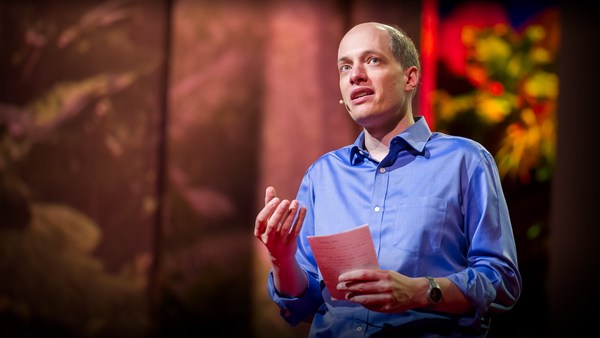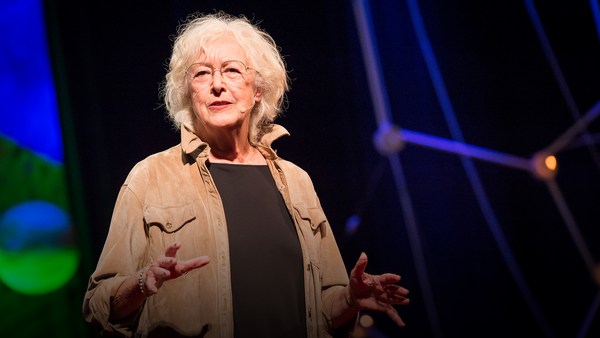The topic of this TEDx event is "heterotopia", although I don’t know how many speakers will explicitly talk about heterotopias today. Thus, for the sake of clarity, I’ll start with a definition of heterotopia, a personal definition, one that sounds clear and sensible to me. A heterotopia is a subspace of the generic space we live in, a subspace even in a broader sense: for example, a subspace of the Web. A subspace where the rules of the generic space -- prohibitions, expectations, and so on -- are overturned, modified, simplified or mirrored, depending on the type of heterotopia. Now, let’s make an example of heterotopia: carnival. Someone may call it a heterochronia -- although I think that, after Einstein time and space are one. The carnival is clearly a heterotopia, and has a feature heterotopias typically share: it’s a "discharge" moment, a space where contradictions, instead of exploding in a full-blown revolution, find their place in a contained, socially accepted revolution, with well-defined temporal boundaries. This way, society prevents revolutions and outbursts -- and this is bad. Porn is also a heterotopia: when you visit a porn website, you are warned. It’s a place where some rules are suspended, or reversed -- on a porn website, for example, you can see a girl in postures, attitudes, and behaviors you can hardly find on common websites; they're actually forbidden everywhere else. Carnival also looks like an upside-down world. A child, for example, is forbidden to dress up as Batman and go to school. Porn is an upside-down world as well, isn’t it? It embodies the same subversion of usual relations that we can find in heterotopias. Alas, much like carnival, porn is also an outlet, and that’s bad. That’s bad because it keeps contradictions, arising from how sex is treated in the common space, from exploding. Therefore, when porn -- like carnival -- stays confined, delimited, it becomes a negative phenomenon. I believe that we should have the freedom to dress like superheroes -- I mean, social freedom -- in any context, even when going to work, even if we hold a position of power. And yet, porn tends to trespass, to invade the common space. Prominent examples are nudes on ordinary gossip magazines, or sex scenes in art movies. Such trespassing of porn into common space is strongly opposed, for instance in social network’s rules. I’ve been told so often: “Ok, you work in porn. Just don’t talk about it, shut up!”. I can’t even talk about porn per se. Among the opposers of porn's trespassing into common space, there are feminists, catholics, muslims, but also intellectuals, atheists too, progressives and conservatives, all united against porn invasion of common space. In my opinion, porn's trespassing into public domain is a sign of progress, for a very simple reason: it rubs the nose into people's irrationality. An example: why shouldn’t a child watch an intercourse scene projected on a giant screen in Piccadilly Circus in London, or in Piazza del Popolo in Rome? What's wrong with that? The problem lays not only in the influence religions still have on people but mostly in current schizophrenias between practice and reason -- for example, when a couple of atheist parents decides to baptize their child for the sake of tradition, or just not to disappoint granny. Or still, in the USA, a parent that decides to circumcise his own son -- so we are talking about a genital mutilation here -- just because it’s always been like that. Someone will bring out usual objections like, “Everybody is free to do as they want or as they believe." But we are not. Because it’s actually legal to instill religious irrationalities into children's minds, it’s legal to refuse to transfuse a child, maybe in the name of Geova, and cause him the loss of a limb -- it already happened. But it’s illegal to show a 13-year-old a PG-14 rated film, just because it shows plenty of all-nude scenes. So, where is freedom here? The truth is we take freedom away from rational people, to give it to irrational ones. Another example: abortion is legal in Italy, yet most of the women who want to have an abortion struggle to do it in a public health facility because most gynecologists are conscientious objectors, in such facilities. The truth is, freedom is never neutral to rationality -- there is always a core of shared truths. So we must ask ourselves: which freedom do we want? Do we want the freedom invoked by religious leaders, popes, or do we want rational freedom? According to that relativist freedom, they can have their medieval parades, with people self-fustigating in the streets, while I cannot freely walk naked. There is no symmetry in this freedom, in this acephalous relativism; there is only the desire to protect irrationality, not to face our own contradictions. Today, two ways of thinking seem to face each other: a strong, religious one; and a weak, secular one. I believe instead, that a strong, rationalist approach should prevail, one that allows to show a movie with nude scenes to a 13-year-old, but forbids to instill him with religious irrationalities. (Applause)





